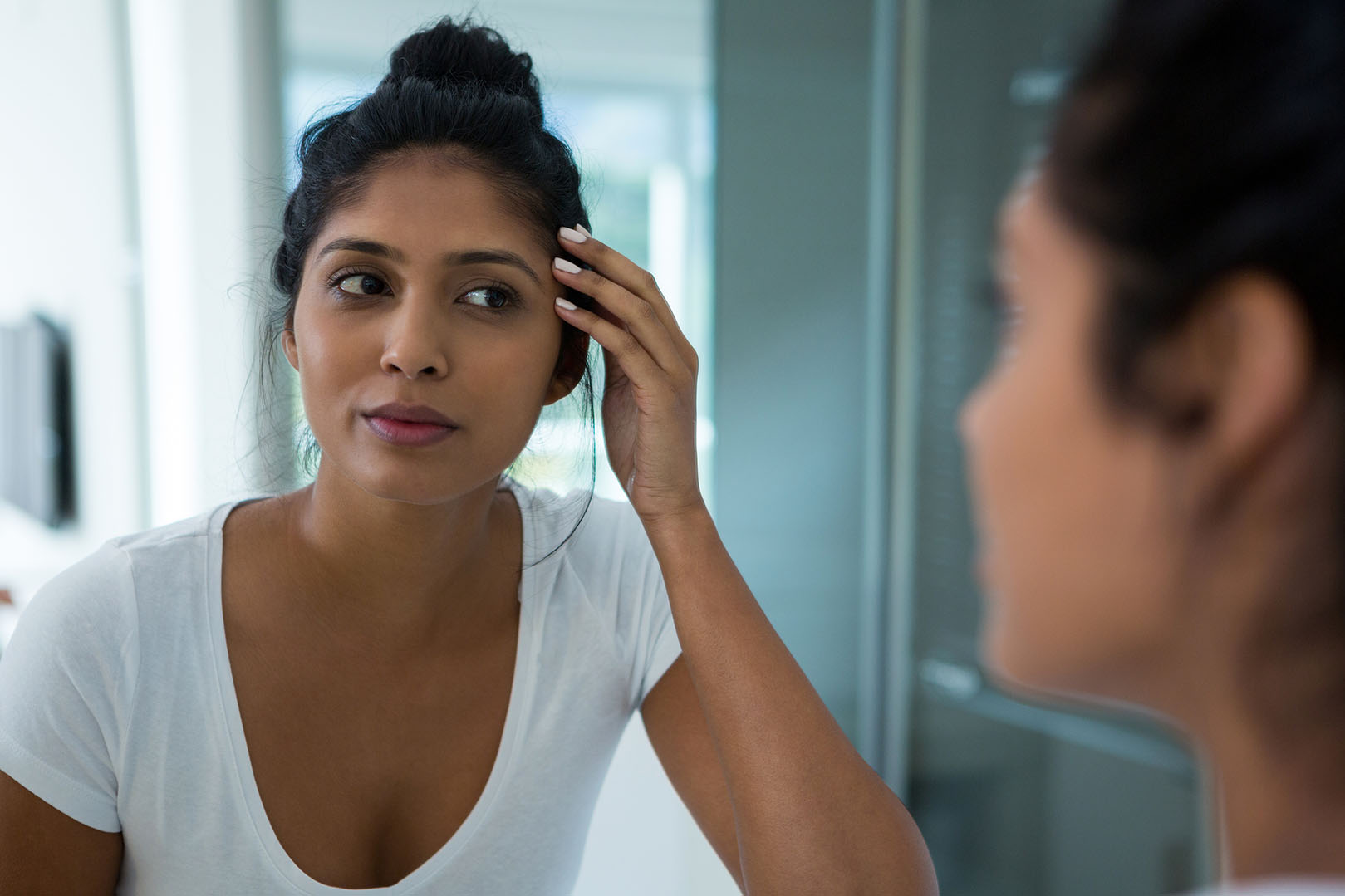It’s been a long day.
You finally get home, and exhaustion hits you out of nowhere. You amble into your bathroom, catch a glimpse of yourself in the mirror and proceed to study your tired eyes. You turn your focus down to your skincare regimen, look back at yourself in the mirror and realize you can’t fathom mustering the energy to go through that whole process before putting your head on your pillow and dozing off.
For that reason, you’re leery about adding anything extra to your skin care routine. But tomorrow is a new day, and there are a number of things you can do to contribute to the health of your skin—and they’re quick and easy.
“I often hear people say, ‘I don’t have time to take care of my skin,’ but I’m also seeing the effect of this every day,” said Dr. Christy Rainey, a dermatologist at Augusta University Health. “But time-consuming, expensive treatments aren’t a requirement for healthy skin.”
1. Wash your face in the morning and evening.
“Cleansing is the best way to eliminate bacteria that can lead to breakouts,” Rainey said. So regardless of how tired you may feel at the end of the day or upon waking up, this step is critical to the health of your skin.
Rainey recommends the following cleansing practices:
- Instead of washing your face with a washcloth, as this can harbor bacteria, use your hands.
- Avoid exfoliating more than two or three times per week.
- Regardless of your skin concerns, always apply moisturizer after cleansing. Skipping on the moisturizer can trigger your skin to produce oil that clogs your pores, especially in those who have oily, acne-prone skin.
A prime time outside of morning and evening to cleanse your skin is immediately after exercising. Sitting around in sweaty clothes for a long period of time can irritate the skin and create an environment for acne to grow. Rainey recommends using cleansing wipes for an on-the-go option.
2. Protect your skin from sun exposure with SPF 30.
Be sure to cover any sun-exposed area on a daily basis. This often includes the face, neck, chest, hands, arms, etc. Rainey recommends a daily moisturizer with sunblock and, for makeup wearers, tinted moisturizers and BB creams.
“Patients have to realize that sunblock is only effective for a short period of time, around 60-90 minutes, so they’ll need to reapply,” Rainey said. “The body metabolizes the SPF after that and is, therefore, no longer effective.”
There are different ways to protect your skin if you don’t want to wear sunblock. This includes wearing a wide-brimmed hat or clothing that contains ultraviolet protection factor (UPF). UPF clothing is usually available in sporting goods stores.
3. Sleep well, and manage stress.
Lack of sleep makes your face look tired and run-down. Stress and little sleep can cause blemishes, puffy eyes, dark circles and flaky skin.
“Eight hours is a good place to start,” Rainey said. “I think we all tend to under-sleep, so get as much sleep as possible.”
4. Consume antioxidants, glycolic acid and vitamin C.
Consuming these organic chemicals can help to regenerate collagen, which is what helps to give our skin strength and elasticity, while replacing dead skin cells. These also hydrate your skin, even out its tone and shield it from visible effects of pollution.
5. Eat a balanced diet of fruit, vegetables and fatty acids.
We’ve all heard the saying “you are what you eat.” Well how about this:
“You are what you eat on the inside and outside, as your skin reflects what you eat,” Rainey said. “For example, if you’re eating a balanced diet of fruit, vegetables and fatty acids, then your skin will reflect that.”
Examples of foods that contain essential fatty acids include a variety of fish, dairy products, olive oil and black seed (aka black cumin).
Eating a healthy diet can also fight inflammation, which often contributes to skin issues.
6. Don’t smoke.
“Smoking is terrible for skin,” Rainey said, citing that it causes aging, clogged pores and wrinkles. “Smoking reduces the blood supply that keeps skin tissue looking supple and healthy.”
Not only does your skin benefit from not smoking, but it also contributes to whole-body health.
Enjoy the benefits of healthy skin and a healthy body
To make an appointment with a dermatologist, call 706-721-2273 (CARE) or 1-800-736-2273 (CARE).





